Restoring vision through cataract surgery reduced the risk of Alzheimer’s disease.
A recent research study published by JAMA Internal Medicine showed that the overall risk for developing Alzheimer’s disease was 29% lower in patients that had cataract surgery compared to those who did not.
A cataract is the cloudiness of the natural lens in the eye that happens with age. Like growing gray hair, it happens to everyone that is lucky enough to celebrate many birthdays. It is not an eye disease like glaucoma or macular degeneration, but rather a normal part of aging of the eye.
This research study looked at various risk factors like years of education, smoking, unhealthy diet, high body mass index, and hypertension, and found that the only risk factor that has a bigger impact on dementia than cataract surgery was to be a carrier of a gene called APOE-e4.

A possible mechanism described in the article for this association is that poor vision due to cataracts affects the visual cortex causing shrinking of the brain which is also a risk factor for dementia on its own.
Dr Romero daily experiences the improvements of the cognitive behavior in her patients after cataract surgery, especially those in which the cataracts are very dense.
She was particularly touched by one patient that was treated as having senile dementia because she was socially withdrawn, could not take proper care of her hygiene, and lost interest in her hobbies. After the cataract surgery she could walk again without help, she smiled, and resumed crocheting as her favorite hobby.
Facts about cataracts and their impact on Alzheimer’s disease
- Visual loss due to cataracts is associated with mental decline
- Patients that have trouble seeing due to cataracts may withdraw from physical, social, and intellectual activities
- Elderly patients should have an eye exam once a year screening for cataracts
- Cataract surgery is safe and effective procedure







